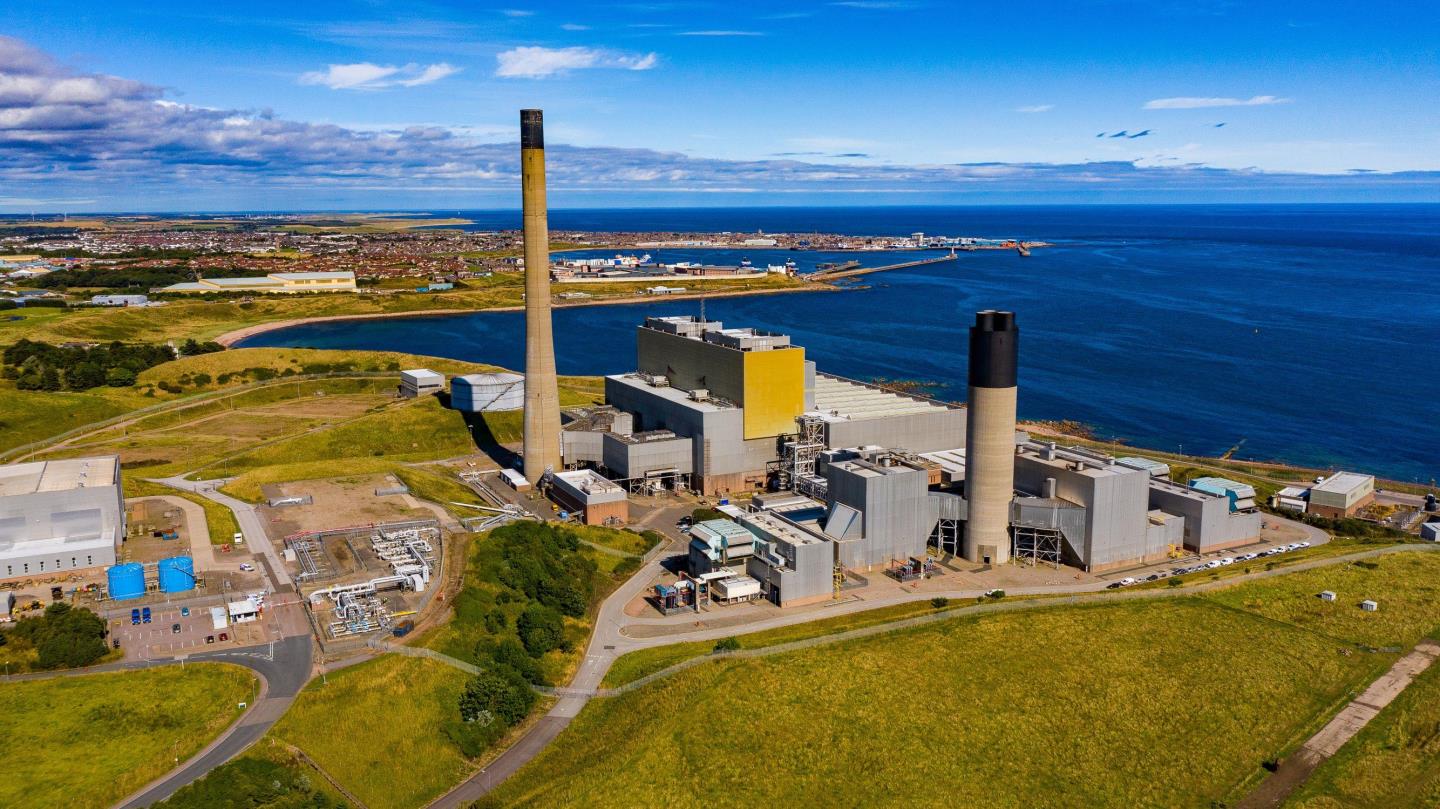Ministers have been “misled” over the environmental impact of a proposed new gas-fired power station in Aberdeenshire, environmentalists have claimed.
Friends of the Earth (FoE) said emissions from the Peterhead 2 facility, which would be built alongside the existing power station, could be five times higher than the site’s developers SSE and Equinor have disclosed in planning documents.
Research commissioned by the group found there were “serious omissions and shortcomings in the developer’s environmental impact assessment (EIA) report, resulting in a severe underestimation of the project’s climate impact”.
This included a failure to take into account “upstream” emissions from the extraction and transportation of gas to the power station which, the research said, would increase over time as supplies of North Sea gas dwindle and the plant – which is due to run until 2059 – becomes reliant on liquified natural gas imported from overseas.
FoE also said the EIA overstated the effectiveness of the carbon capture and storage (CCS) plant that would be built as part of the facility, which would see emissions captured and pumped into depleted oil wells in the North Sea.
They described the 90-95% carbon capture level that has been projected by SSE as “wildly unrealistic” as it does not take into account periods of “unplanned outage” of the CCS, and is at a level that has never before been achieved by a CCS facility.
The research estimated that once these additional factors were taken into account, the 910-megawatt power station could cause 1.25 million tonnes of carbon dioxide to be emitted each year – five times more than the 250,000 figure in documents presented to the Scottish Government.
‘Selective carbon accounting’
Friends of the Earth Scotland’s climate campaigner Alex Lee said: “SSE and Equinor have deliberately hidden the true climate cost of their proposals to build a new gas burning power station at Peterhead.
“Scottish Government ministers have been misled through selective carbon accounting and wildly unrealistic forecasts.
“In a bid to lock in expensive fossil fuel burning for another 30 years, these greedy energy companies are making claims about carbon capture that do not stand up to the slightest scrutiny.
“These companies seem willing to say whatever it takes to get this project built, leaving the Scottish public to bear the cost of its inevitable failure.”
FoE also said that by 2044 the plant would account for between 50-80% of Scotland’s total carbon budget, and so would put pressure on other sectors of the economy to reduce emissions more rapidly.
The group called on the Scottish Government to order SSE and Equinor to produce an “honest assessment” of the full environmental impact of the proposed power station.
It pointed out that a similar carbon capture gas power station in Teesside was recently ordered by the UK Government to resubmit planning documents, and to include analysis of the emissions from producing and transporting the gas that would fuel the plant.
Alex Lee added: “When the Scottish Government sees the true climate harm of this project, the only rational response will be to reject it and focus instead on rapidly building up Scotland’s renewable energy future.”
Peterhead Power Station opposition
A petition earlier this year calling for the proposed development to be scrapped was signed by more than 13,000 people.
A Scottish Government spokesperson said: “It would not be appropriate to comment on a live planning application.
“A decision will be taken by ministers in due course, following consideration of the application information, consultation responses and representations made by members of the public.”
A spokesperson for SSE Thermal said: “With the UK Government committing £22 billion to carbon capture, there can be no doubt over its role in delivering net zero. Carbon capture will help to displace older unabated assets and will be absolutely critical if we’re to achieve a clean power system.
“Our planning application, submitted in early 2022, sets out the huge emissions reductions the proposed flexible plant at Peterhead can deliver with the ability to capture at least 90% of emissions.
“In line with evolving planning policy, we are in the process of submitting additional information to the Scottish Government’s energy consents unit.
“We remain fully confident that planning consent will be granted and that a decarbonised Peterhead will help to keep the lights on, unlock a renewables-led system and create and retain good jobs.”
Equinor declined to comment.
Recommended for you




 © Supplied by SSE Thermal
© Supplied by SSE Thermal © Supplied by SSE
© Supplied by SSE






